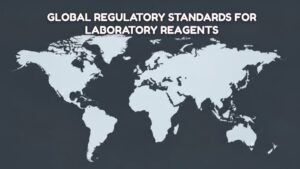As the global chemical industry pivots toward sustainability, biochemical engineering emerges as a transformative solution. It combines biology, chemistry, and engineering to develop cleaner, renewable alternatives for traditional chemical processes. At the forefront of this shift in India is GSP Chem, a trusted chemical supplier that is innovating sustainable manufacturing through the strategic use of pH indicators and life science-based reagents.
What is Biochemical Engineering in the Chemical Industry?
Biochemical engineering focuses on designing processes that use biological organisms, enzymes, or pathways to manufacture chemicals, materials, and fuels. Its applications include:
- Fermentation-based production
- Wastewater treatment with biosystems
- Enzyme-enabled synthesis of fine chemicals
- Bio-indicator development for monitoring processes
GSP Chem has recognized the potential of this field and is adapting its offerings to align with bioprocess monitoring and environmentally conscious chemical development.
GSP Chem’s Role in Sustainable Biochemical Engineering
GSP Chem has long been a key contributor to the chemical reagent and pH indicator supply chain. In recent years, the company has taken a forward-thinking approach by:
- Offering pH indicators that support fermentation and bioprocess monitoring
- Developing reagents for precision-based biochemical diagnostics
- Exploring non-toxic, biodegradable alternatives in product lines
This shift supports cleaner operations not only for GSP Chem’s internal quality processes but also for their clients in pharmaceuticals, diagnostics, and food sciences.
pH Indicators as Tools for Sustainable Bioprocess Monitoring
pH control is essential in any biochemical process, from fermentation to enzymatic reactions. GSP Chem manufactures high-purity pH indicators that help monitor and control these sensitive reactions, such as:
- Phenol Red
- Bromocresol Purple
- Thymolphthalein
- Bromothymol Blue
These indicators are critical in maintaining process integrity and minimizing waste, ensuring reactions occur at optimal conditions. Their use reduces chemical consumption and supports zero-defect quality practices.
Case Applications: Where GSP Chem’s pH Indicators Make a Difference
- Biopharmaceutical Manufacturing
In large-scale fermentation tanks used for drug production, maintaining pH is crucial. GSP Chem’s bromocresol purple and phenol red are used as real-time visual indicators, helping reduce dependency on synthetic buffering agents. - Diagnostic Reagents
GSP Chem’s pH-sensitive dyes are embedded in biochemical test kits, contributing to quicker and more accurate medical diagnostics. - Food & Beverage Quality Control
Through its pH-sensitive indicators, GSP Chem also enables food labs to detect spoilage or contamination in a safe, non-invasive manner.
Green Chemistry: Reducing Environmental Impact
GSP Chem is actively replacing traditional, hazardous indicators with eco-conscious formulations. These efforts are supported by:
- Eliminating harmful solvents from indicator dyes
- Creating non-toxic, non-carcinogenic staining agents
- Reducing energy-intensive processes in synthesis
By doing so, GSP Chem is lowering its carbon footprint while helping its clients meet regulatory and ESG (Environmental, Social, and Governance) goals.
Innovation in R&D: Custom pH-Driven Solutions
The company’s R&D division works closely with biotech and environmental firms to:
- Develop customized pH-sensitive compounds
- Tailor indicators for specific microbial strains
- Design multi-indicator kits for layered process monitoring
Such innovations support closed-loop manufacturing systems that rely less on external controls and more on automated biochemical triggers, an important evolution in sustainable production.
Training & Partnership with Sustainable Institutions
In addition to product innovation, GSP Chem is fostering sustainable practices by:
- Collaborating with universities and R&D labs
- Providing reagent kits for biochemical engineering courses
- Educating partners on proper indicator usage to minimize waste
These partnerships enable broader adoption of green biochemical practices across the chemical industry.
Conclusion
The integration of biochemical engineering with pH-sensitive innovations marks a major shift in how the chemical industry can become more sustainable. At the heart of this transformation is GSP Chem, a company committed not just to meeting global standards but to setting them. With each new indicator and reagent, GSP Chem is building a smarter, greener, and more responsible future for chemical manufacturing.








